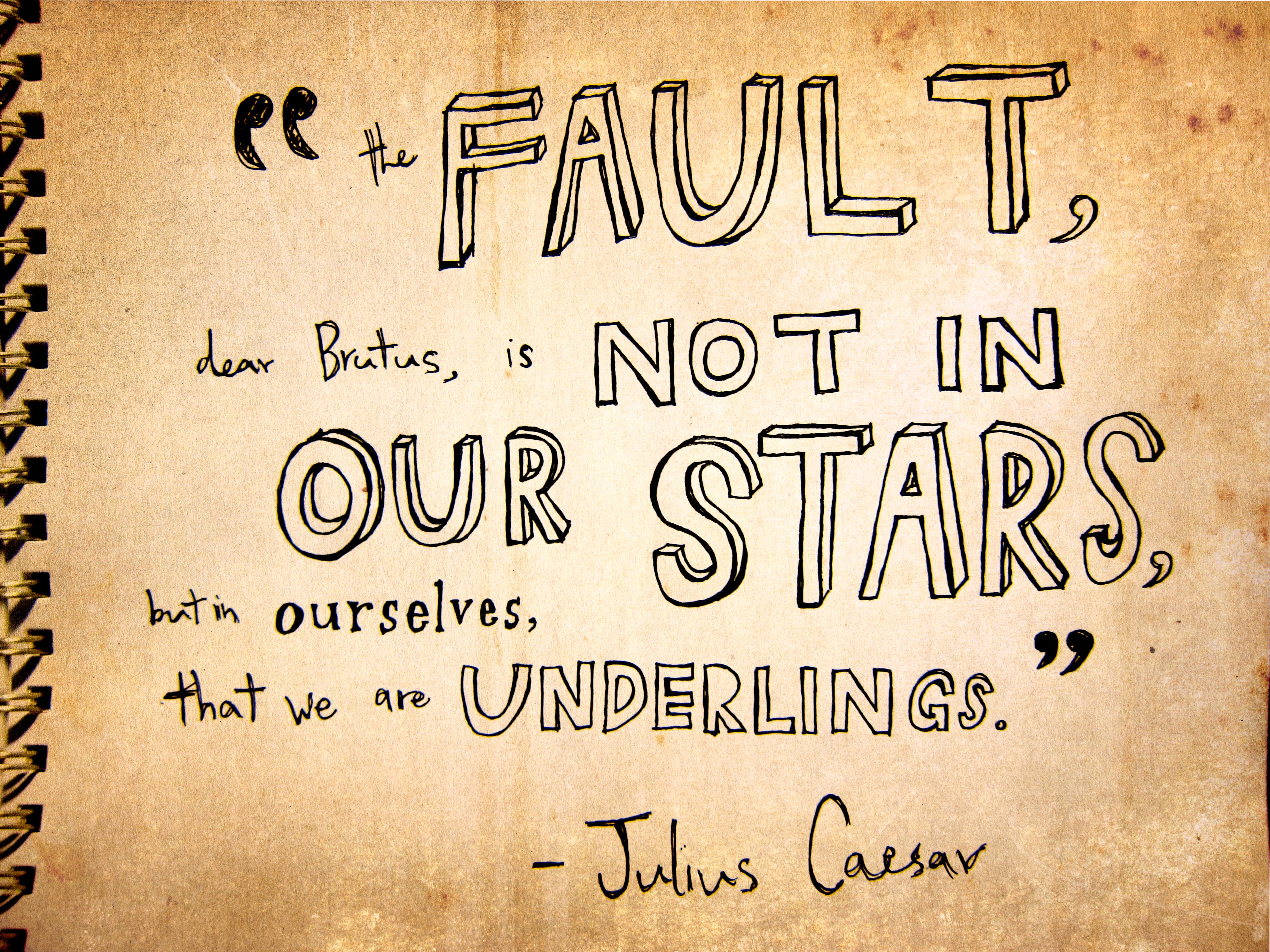Improbable Radness and Existential Swagger in The Fault In Our Stars

No spoilers!
[soundcloud url=”http://api.soundcloud.com/tracks/77558079″ params=”” width=” 100%” height=”166″ iframe=”true” /]
The Fault In Our Stars is about love and death and sex and literature and cancer and Amsterdam and irony and infinity, and you should read it. I’m not going to tell you about the improbable radness and fragile beauty of the protagonist, Hazel Grace Lancaster, or the existential swagger of her star-crossed love, Augustus Waters. I’m not going to tell you how the story begins or ends. I’m going to tell you about how it made me feel.
What you read reveals infinitely more about you than what you write. When you write, your expression is limited to the words you know and the things you can imagine. When you read, though, you can choose from all the words ever written about anything anyone has ever imagined.
I just finished The Fault In Our Stars by John Green, and it left me with a kind of omni-emotional longing I thought I had forgotten how to feel. John Green. John Fleeping Green. He’s like Cameron Crowe, J.D. Salinger and Jean Paul Sartre all smashed into one guy. He writes teenager so well that, while I’m swimming in his stories, I have to keep reminding myself I’m not one.
Only, maybe I am. Adolescence is about discovery, and middle-age (which I’m rapidly approaching) is about rediscovery. Maybe there are more parallels here than I’d like to admit. So what could there possibly be in a “Young Adult” novel about teens with cancer that would appeal to a thirty-six year old ex-actor, ex-musician marketing professional trying to break into publishing?
Here’s a quote:
“The voracious ambition of humans is never sated by dreams coming true, because there is always the thought that everything might be done better and again.”
Here’s another:
“Almost everyone is obsessed with leaving a mark upon the world. Bequeathing a legacy, outlasting death. We all want to be remembered.”
Those are just the quotes I highlighted. You might highlight:
“Some infinities are bigger than other infinities.”
or
“Sometimes, you read a book and it fills you with this weird evangelical zeal, and you become convinced that the shattered world will never be put back together unless and until all living humans read the book.”
But that’s the beauty of reading. An author vomits up all these thoughts and feelings and imaginings and then rearranges and edits them until they feel correct; but as soon as that author types “THE END”, the book ceases to belong to them and becomes, entirely, about you.
THE END
P.S.
I listened to the audio version of TFIOS, and I must commend actress Kate Rudd on her performance. Narrating an audiobook, particularly a John Green audiobook, must be like performing a beloved John Hughes movie live on stage in front of an audience of its hardcoriest fans. She captured the fragile radness of Hazel Grace and the charisma of Augustus Waters and managed to hint at the three-dimensionality of all the grown-ups in the novel who are masterfully written but necessarily receive very little page-time due to the book’s teenaged point of view. Amazing job, Ms. Rudd.
audio, Fiction, john green, review, the fault in our stars, writing, ya, ya fiction
dean
Sounds like an interesting read. I’ve added it to my “to-read” list. And I loved that you narrated your entry. It’s something I’ve been meaning to play with on my own site.